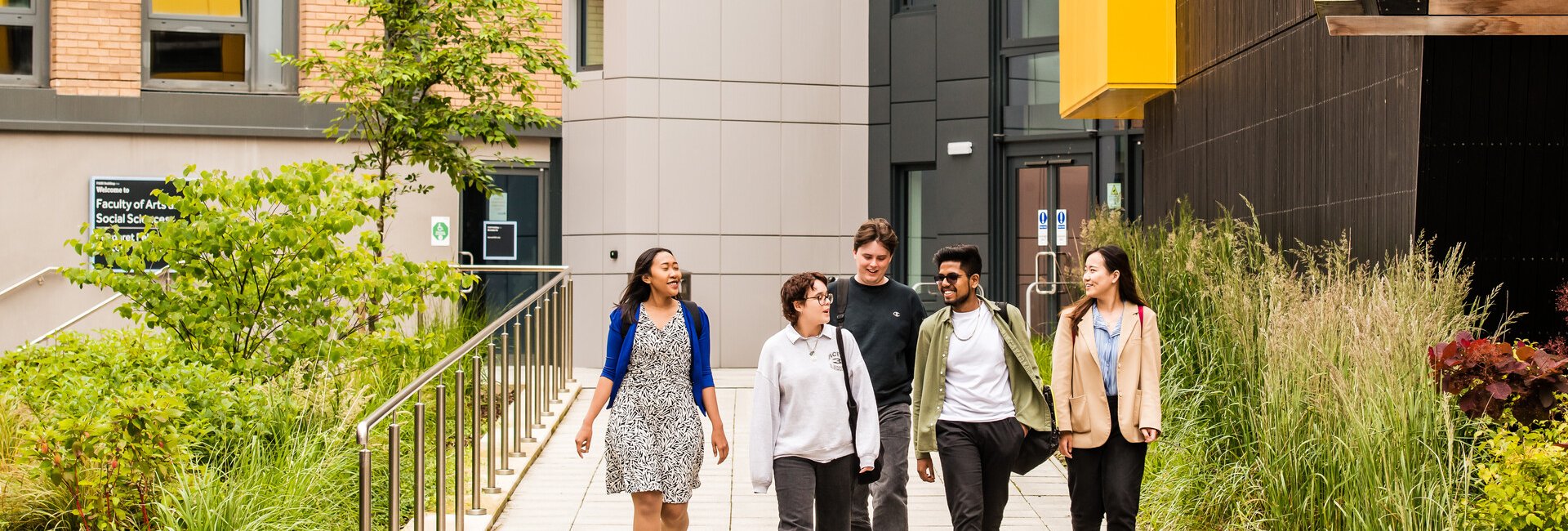Lancaster University Open Day
28 Jun 2025, 09:00
Lancaster

Why Lancaster?
Learn from specialists in the history of Africa, Asia, the Americas, Europe and the Middle East, helping you gain a truly global perspective
You’ll be taught by experts from our Department of History and our Department of Politics, Philosophy and Religion – and you’ll be among the first to hear their latest insights
Attend events and talks at our Centre for War and Diplomacy and the Richardson Institute for Peace Studies – the oldest peace and conflict research centre in the UK
Explore the vibrant history right on your doorstep, from museums and archives to Lancaster Castle and the Lake District
Sign up for the opportunity of a placement with a heritage organisation or an internship with an NGO or think tank to gain valuable work experience and skills.
Prepare for your future career at each stage of the programme, so you’ll be ready to launch your career in the heritage sector, local or national government, or a range of other fascinating careers.
The archives of military history. The intricate tapestry of diplomacy. The art of warfare. The complex web of state relations. Prepare to immerse yourself in a world where past events on a global stage illuminate the challenges for today’s world.
From conspiracy theories to global capitalism
Kick off the programme addressing real-world, relevant challenges. Explore conspiracy theories in society. Unravel issues with global capitalism. And engage with topics such as terrorism and religious conflict.
Working with experts from both our Department of History and our Department of Politics, Philosophy and Religion, you’ll develop an in-depth understanding of how the two subjects intertwine.
Inspiring opportunities
At Lancaster, it’s not just about attending lectures and seminars – we also care about creating a culture of learning beyond the classroom. Hear from significant guest speakers at our Richardson Institute for Peace Studies and take part in events at our Centre for War and Diplomacy. You might get to experience a live round table discussion with journalists, political scientists and historians, or take part in a field trip to Westminster.
Your future career is important to us. That’s why we focus on real-world issues and offering opportunities to add to your CV, both via the course and extra curricula opportunities. You could be developing professional skills during an internship with the Richardson Institute for Peace Studies or maybe you’ll get involved in field trips with the history society.
Your Placement Year
You'll spend your third year in a paid, graduate-level position, where you’ll work for between nine and twelve months in the type of role that you might be considering for after you graduate. A very wide range of companies and organisations offer placements across all sectors. As a full-time employee, you’ll have a detailed job description with specific responsibilities and opportunities to access training and development, the same as other employees.
Our Careers and Placements Team will help you to secure a suitable placement with expert advice and resources, such as creating an effective CV, and tips for applications and interviews. You will still be a Lancaster University student during your placement and we’ll keep in touch to check how you are getting on.
The university will use all reasonable effort to support you to find a suitable placement for your studies. While a placement role may not be available in a field or organisation that is directly related to your academic studies or career aspirations, all offer valuable experience of working at a graduate level and gaining a range of professional skills. If you are unsuccessful in securing a suitable placement for your third year, you will be able to transfer to the equivalent non-placement degree scheme and continue with your studies at Lancaster, finishing your degree after your third year.

Learn what it's like to study at Lancaster University. From key stats to campus highlights, open days, and more - find everything you need to know here.
The following entry points are available for this course:
This section shows the range of grades students were previously accepted with - learn more. It is designed to support your research but does not guarantee whether you will or won't get a place. Admissions teams consider various factors, including interviews, subject requirements, and entrance tests. Check all course entry requirements for eligibility.
Students aged 17/18 who applied to this course were offered a place.
See how students with your grades have been accepted onto this course in the past.
Operated by the Office for Students
Employment after 15 months (Most common jobs)
Go onto work and study
The number of student respondents and response rates can be important in interpreting the data – it is important to note your experience may be different from theirs. This data will be based on the subject area rather than the specific course. Read more about this data on the Discover Uni website.
No fee information has been provided for this course
Tuition fee status depends on a number of criteria and varies according to where in the UK you will study. For further guidance on the criteria for home or overseas tuition fees, please refer to the UKCISA website.
For information on our fees, please see www.lancaster.ac.uk/study/fees-and-funding.
Bailrigg
Lancaster
LA1 4YW
Visit our website Visit our course page
Email:ugadmissions@lancaster.ac.uk
Phone:01524 592028